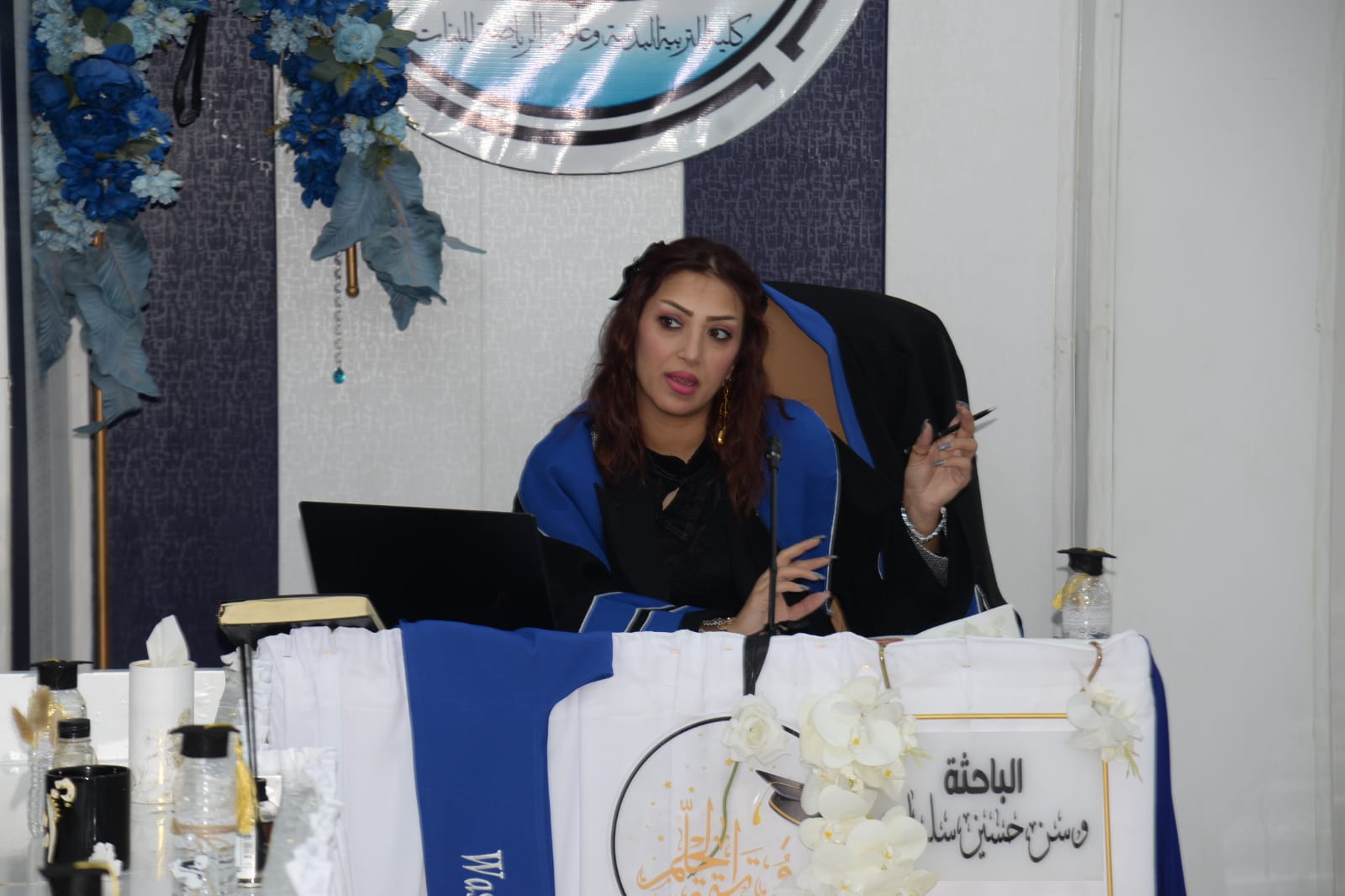The Dean of the College of Physical Education and Sports Sciences for Women at the University of Baghdad, Prof. Dr. Fatima Abd Malih, chaired the examining committee for the master’s thesis titled (The Effect of Functional Training on Some Biokinetic Abilities, Offensive and Defensive Skills, and Electromyographic Activity of Foil Fencers Aged 17–19) by researcher (Wasan Hussein Salman).
The examining committee also included: Asst. Prof. Dr. Ishraq Ghalib Ouda – Supervisor, Prof. Dr. Osama Ahmed Hussein – External Member (University of Baghdad), Prof. Dr. Mustafa Hassan Abdul Karim – External Member (Al-Mustansiriyah University).
The study aimed to design functional training programs using the (F45) method tailored for fencing and apply them to youth foil fencers aged 17–19 during the 2024–2025 sports season. The sample consisted of (10) players, and the training sessions were conducted at the Iraqi Central Federation of Fencing and Modern Pentathlon hall in Baghdad. The research sought to examine the impact of (F45) functional training on biokinetic abilities, offensive and defensive skills, and the electrical activity of muscles in young foil fencers.
The findings showed that the (F45) functional training method significantly enhanced specific biokinetic abilities and the experimental group’s offensive and defensive skills in post-tests. Moreover, it contributed to developing the electromyographic signals of the key muscles in the weapon arm and legs, indicating better muscle control and coordination during various skills.
The study recommended adopting the (F45) functional training approach in national team programs due to its accessibility, short duration, variety, engaging nature, and proven effectiveness in improving post-test results. It further advised considering age categories in both short- and long-term training plans, taking into account individual differences and players’ general levels, and establishing an annual plan to conduct electromyography (EMG) tests for national team players to track muscular development before, during, and after training curricula, using these results to design future training programs.
This defence contributes to achieving one of the Sustainable Development Goals (SDG 4), which focuses on ensuring quality education.
